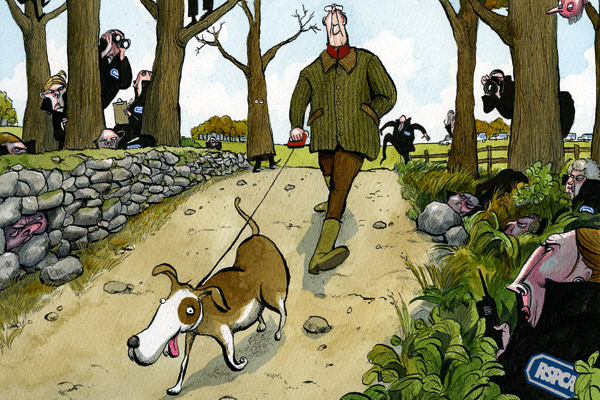In January of this year, Melissa Kite wrote our cover story about how the RSPCA has morphed from being an animal welfare charity into an animal rights group. She wrote of the ‘culture of fear at their headquarters’, and explained ‘how deeply suspicious some animal experts have become of this once-respected body’.
Since then, the problems have only worsened. In July it was revealed that the charity’s Chief Executive, Gavin Grant, was paid ‘between £150,000 and £160,000’ a year – at least £30,000 more than his predecessor. Last week it was found that the charity has access to the Police National Computer, allowing it to investigate any suspect, witness or defendant’s criminal record.
One RSPCA whistleblower – a former inspector who claimed that the RSPCA was killing animals unnecessarily – was found hanged at her home in May, after tweeting that the charity had ‘ruined my life’. And a barrister decided to stop taking on cases defending clients against the RSPCA, after claiming that their complaints about his work had ruined his health and career and might have led to suicide.
The RSPCA has continued private prosecutions – with any defence costs in failed prosecutions being covered by the taxpayer. And there have been numerous stories of the charity actively prosecuting the vulnerable – including the elderly and children – with some people claiming that this is a deliberate publicity stunt to bring in more donations.
So, is the RSPCA really a law unto itself? The BBC explored this this question on Radio 4’s Face the Facts earlier today. Only the CPS takes more cases to court, announced the presenter John Waite, and the RSPCA ‘has nearly doubled the number of prosecutions it takes in the last couple of years.’ The programme was an interesting look at how the UK’s largest animal charity goes about its business. There were interviews with members of the public who have been targeted by the RSPCA, vets concerned about the charity’s behaviour who have had their names tarnished as a result, and Gavin Grant himself. The rise in the number of prosecutions, Grant argued, is ‘a result of people acting in the most appalling manner to animals’. What the charity wants to do is to ‘warn’ and ‘guide’ people in their behaviour.
Has the RSPCA lost its way, or is it acting as an animal charity should? The full programme is available to listen to here.







Comments